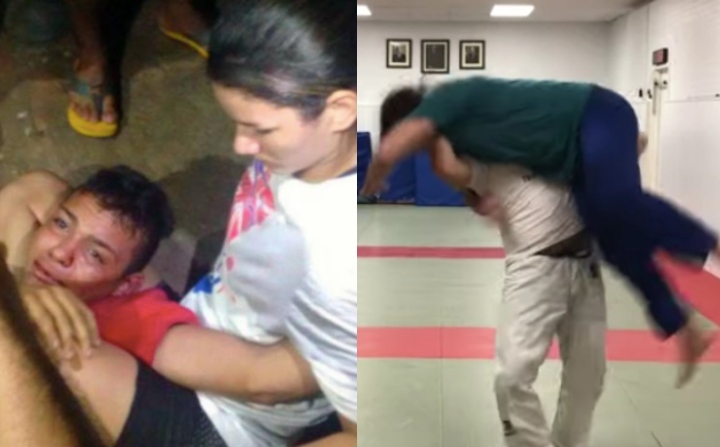Is it better to have trained BJJ or Judo when a self-defense situation arises? If you’re a Jiujiteiro, then this might not be what you want to hear… But it’s something that you absolutely need to know and that will make you into a better Jiu Jitsu practitioner as well.
HOW YOU TRAIN IS HOW YOU’LL DEFEND YOURSELF
Let’s start by imagining a self-defense situation. What can you see? You’re probably seeing complete chaos with people swinging and pulling each other left and right; or you’re seeing some sort of a situation where one individual is approached by another and then attacked by them.
Whether or not that which you’ve imagined is a part of these two examples, it’ll still share a common thing with them: aggression. Simply said, situations in which you’ll need to defend yourself are going to be fueled with a lack of any sensible approach. The other person will have an aim of inflicting you as much damage that they can. In the shortest possible amount of time.
Therefore, to successfully defend yourself in moments like these, it’s necessary to be used to taking part in aggressive physical situations! In other words, if you want to be prepared for a self-defense situation, your training needs to reflect that wish.
So, if you’re training timidly and are too afraid to go full-power when you roll, then why do you think you’ll be courageous enough to defend yourself from an attacker that is pushing you in a confined space? If you’re not giving it your all while trying to subdue your training partners and opponents in a match, then do you think you’ll be able to defend yourself the best that you could?
To put it bluntly: how you train is how you’ll fight. And how you fight is how successful you’ll be when you need to defend yourself.
LEARN FROM JUDO – BE MORE AGGRESSIVE AND PRACTICE YOUR TAKEDOWNS
Your reactions need to be in the right place before it’s necessary. This is why the way you train and the way your training is conceptualized are most important. They need to be applicable to a self-defense scenario. And that’s the reason why, when it comes to „Judo vs BJJ self-defense“, a lot of Judokas point towards the often passive nature of a Brazilian Jiu Jitsu match versus a Judo one – as well as towards the (frequent) lack of takedown training in BJJ.
Truth be told, a lot of BJJ competitions go down in an „acquire points and stall until it’s over“ sort of a match; where the two competitors are often involved in a long game of human chess. Judo matches, on the other hand, are often way more dynamic; there’s not as much „waiting“ as in a BJJ match.
While there’s nothing wrong with stalling when it comes to BJJ as a sport, when a self-defense scenario is considered… Well, it’s not a good thing to realize you became used to. When defending yourself, there’s no time to wait. You have to react to aggression with aggression, in order to subdue the other person.
With that, it’s fair to say that, in self-defense, taking someone down to the ground with full force beats pulling guard every time. Pretty self-explanatory, right? Pulling guard is okay when you compete; but if you want to protect yourself, step up your takedown training.
So, if you want to be a person who’s better prepared for a self-defense situation, take two lessons from Judo; train more aggressively and start incorporating more takedown training… This’ll turn you into a better Jiujiteiro as well!
Jiu-Jitsu Based Self Defense Solutions by Eli Knight. Learn how to use BJJ for its most powerful use, protecting yourself from an attacker on the street.
BJJ Black Belt Eli Knight shows how to use BJJ for self defense in 8 volumes of dedicated real world situations.


















